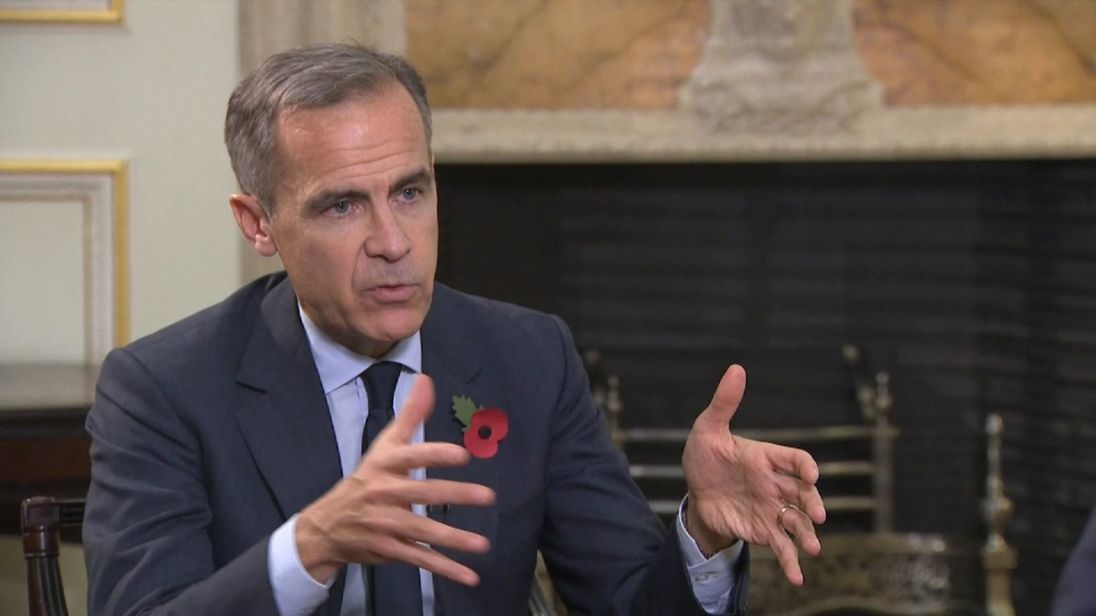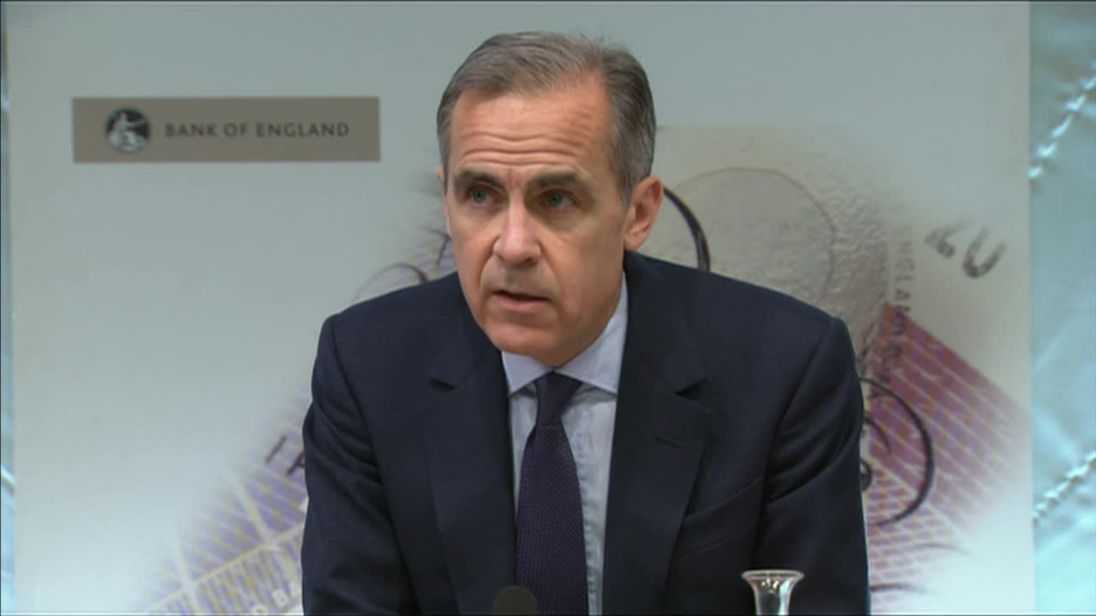By John-Paul Ford Rojas, Business Reporter
The UK's seven biggest lenders are all strong enough to cope with a "disorderly" no-deal Brexit, according to a Bank of England assessment.
But the Bank said it would consider whether the firms needed to hold billions more capital as an emergency buffer in case such a scenario coincided with a wider global downturn.
The Bank's financial policy committee also set out a wishlist of actions required to mitigate the risks to UK financial services posed by the departure from the EU.
For the first time since the annual stress testing regime began in 2014, all the major lenders received a clean bill of health, though the weakest two – Barclays and state-backed Royal Bank of Scotland – struggled.
The tests modelled a nightmare scenario under which UK GDP slumps by 4.7% amid a wider global downturn, unemployment rises to 9.5%, the pound plunges and the Bank's interest rate climbs to 4% – while house prices undergo a record 33% collapse.
They were carried out on Lloyds Banking Group, HSBC, Barclays, RBS, Santander UK, Standard Chartered and Nationwide.

The tests work out how much the level of capital held by each lender would fall under the "stress".
The Bank of England said the latest invented scenario would mean banks incurring losses of £50bn over two years – a level that would, a decade ago, have wiped out their capital base.
Since then lenders have been building up their strength amid tougher standards.
In the latest assessment the Bank found that, based on their state at the end of 2016, Barclays and RBS would fall short of the required levels set for them.
However, asset sales they have carried out in the months since that time meant they would now meet targets.
The stress testing regime was put in place in the aftermath of the 2008 financial crisis to try to ensure that, should another sharp downturn occur, lending would not seize up, accentuating the difficulties faced by the wider economy.
The latest scenario included potential risks to the financial sector such as those posed by the growth in consumer debt as well as global vulnerabilities from countries such as China, and tens of billions pounds more in misconduct costs.

Governor Mark Carney said the FPC "judges that the banking system can continue to support the real economy even in the unlikely event of a disorderly Brexit".
The stress test was published alongside the FPC's biannual Financial Stability Report.
It confirmed that the Bank was raising the so-called "countercyclical buffer" – a back stop that can be held by lenders and be released at a time of economic stress – from 0.5% to 1%, continuing a normalisation after it was cut to zero following the Brexit vote.
That 1% level establishes an emergency buffer for the UK financial system of £11.4bn.
But the FPC acknowledged that in the first half of next year it would need to consider lifting this "in the light of the overall risk environment".
While it had judged UK banks as being able "to support the real economy through a disorderly Brexit", it added: "The combination of a disorderly Brexit and a severe global recession and stressed misconduct costs could result in more severe conditions than in the stress test.

"In such circumstances, capital buffers would need to be drawn down substantially more than in the stress test and, as a result, banks would be more likely to restrict lending to the real economy."
The Bank also called for a series of measures to try to mitigate the "risks of disruption to UK financial services arising from Brexit".
These included ensuring that the right UK legal and regulatory framework was in place, and delivering a "timely agreement" for a transition period – echoing calls previously made by Bank officials and the City, though not giving a timeframe.
It also said legislation in both the UK and EU was needed to protect cross-border insurance policies affecting six million UK policy holders and 30 million in the EU, as well as £26tn of derivatives contracts, that could otherwise be affected.
Meanwhile, the Bank will set out plans by the end of this year on licencing European banks to continue operating in the UK after Brexit.
RBS finance director Ewen Stevenson said it had continued to make progress but that with legacy issues – such as a looming multi-billion dollar fine from the US Department of Justice – still hanging over it, its stress test results would remain "weaker than our long-term targets".
Barclays acknowledged a "'hard fail" of the test but noted that it had not been required to submit a revised capital plan.
More stories
- Previous article Carmakers urge no time limit Brexit transition
- Next article Stress test more severe than last crisis





